Film Screenings 2010 / Santiago, Chile
Centro de Arte Alameda
What do the images produce?
Bertrand Bacqué, may 2010
From its origins, the documentary has had a relationship with history, with the other's identity. When you use to quote the Lumiére brothers in order to situate the origin of cinema and the documentary, you voluntarily forget about Georges Méliés and his "rebuilt current issues" as for instance "The Dreyfus Affair" (1899) one of the first films engaged with the history of cinema; or Francis Doublier who, being sent to Russia by Louis Lumiére, carries out an image editing that had nothing to do with "the affair", in order to have the possibility to talk to his new audience, eager of current issues. Was this the first fiction of history or first documentary-essay? Not one, nor the other, it was simply the intuition of reenactment and of editing.
Towards the end of the 20s, Dziga Vertov celebrated, with the occasion of his virtuous editing, the new socialist man ("Man with a Movie Camera", 1929); Jean Vigo vindicated a "documented" point of view, criticizing at the same time Niza's idle bourgeoisie ( "About Niza" / "A propose de Nice" , 1930), meanwhile Robert Flaherty was carrying out the portrait of the man who is facing nature on "The Man of Aran", 1934, being witness of an ordeal a thousand times millenary. During the 30s, Grierson and Ivens used to defend, each one on their own way, a social and political documentary.
Nevertheless it was on the 50s when a new way of writing started to generate, addressing towards the notion of the essay. Resnais ("Night and Fog", 1956) co-creates along with Chris Marker "Even Statues Die" (1953), a disruptive and anti-colonialist film censored for many years. Marker, on "Sans soleil" (1983), and late Godard, on "Cinema History" (1988) are also part of this trend. Till the end of the 50s, thanks to the technological advances that allow the reduction of the filming equipment and due to the arrival of synchronized sound, the "Direct Cinema" (Drew, Lealock, Maysales in the US), the "Living Cinema" ( Perrault and Brault in Quebec) and the "True Cinema" of Jean Rouch (France) developed successively. Their formal boldness, between fiction and documentary will give wings to the "Nouvelle Vague" and to Africa's post-colonial identity ( "Black like me, 1959).
Robert Kramer, questioning the fragmented the identity of Northamerica on "Route One/USA", 1989, Johan Van Der Keuken, the north-south relationship and the globalization ( "Amsterdam, Global City", 1997) or Raymond Depardon with "Africa, How are you with pain?", 1996, are the distant heirs of a direct cinema completely revisited. Nowadays, when the differences between fiction and documentary are obsolete, the filmmakers of the real also wonder about the fragmented identities when it comes to globalization, the massive movements of population and the new frontiers. Bruno Ulmer (France), Patric Jean ( Belgium), Fernand Melgar (Switzerland) explore those territories on the bounds of direct, essay and fiction cinema.
Questions notoriously shared by the contemporary artists who work in the field of video essay. They also ask themselves in a critical way about the consequences of industrialization, the imbalance between north and south, cities and countryside, men and women, the migration phenomena and / or post –colonialism. Harun Faroki, Walid Raad, Yverant Gianikian and Angelica Ricci Lucchi, Ursula Biemann, Alan Sekula, Anri Sala, Ingrid Wildi Merino, Alfredo Jaar and Claudia Aravena, among others address their look towards the same subjects, using languages, proper but always dialoguing with cinema, in order to make their contemporaries realize about the issue.
The objective of this course and program, between contemporary cinema and art, past, present and future, is to interrogate the most orthodox ways or the most experimental ones, in order to sharpen our look about the world, to find new ways of visibility of the invisible and finally, to answer the question: What do the images produce?
Film Screenings Exhibition 2010
Opening - 1 Sept.
Cine Arte Alameda, Santiago CHILE
8pm / Introduction Bertrand Bacqué
9pm / Opening Movie

Welcome Europa
Dir: Bruno Ulmer
90ʼ, 2006
DOWNLOAD
Film Screenings Program
Morning Course 1 to 8 sept. / 9am to 1pm hrs
[only for university students]
Centro de Extensión Universidad Católica

Lʼhomme à la caméra
Dir: Dziga Vertov
80ʼ,1929

A propos de Nice
Dir: Jean Vigo
22ʼ,1930

LʼHomme dʼAran
Dir: Robert J. Flaherty
73ʼ ,1931-1933
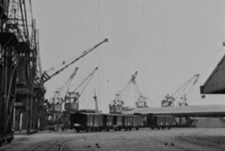
Borinage
Dir: Joris Ivens
36ʼ, 1934
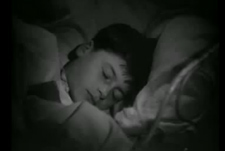
Farrebique
Dir: Georges Rouquier
100ʼ, 1946
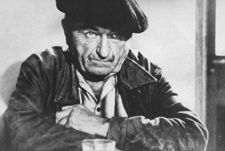
Biquefarre
Dir: Georges Rouquier
90ʻ, 1983
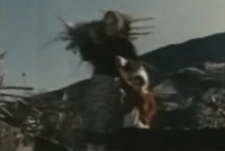
Corto Metrajes
Dir: Vittorio De Seta
1954-1959
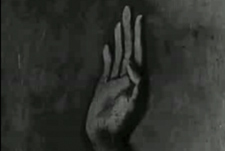
Corto Metrajes
Dir: Alain Resnais
1950-1960

On the Bowery
Dir: Lionel Rogosin
62ʼ,1956

La pyramide humaine
Dir: Jean Rouch
1961

Pour la suite du monde
Dir: Michel Brault and Pierre Perrault
85ʼ,1963

Route one USA
Dir: Robert Kramer
4h 15ʼ, 1989

Amsterdam Global Village
Dir: Johan van der Keuken
245 ́, 1997

Histoire(s) du cinéma: Toutes les histoires
Dir:Jean-Luc Godard
1988
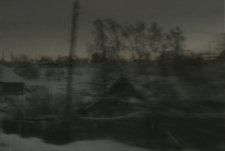
Élégie de la traversée
Dir: Alexandre Sokourov
48ʼ, 2001
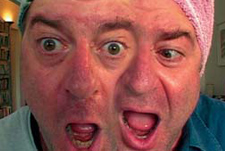
Août
Dir: Avi Mograbi
72ʼ, 2002
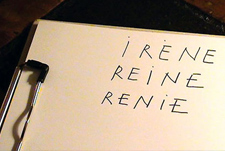
Irène
Dir: Alain Cavalier
85ʼ, 2009

Treating
Dir: Wu Wenguang
2010
Projections 1 to 8 sept. / 3:30pm to 5:30pm
Bertrand Bacqué
Clasics
Cine Arte Alameda
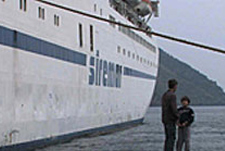
LʼUltima Isola
Dir: Magherita Cascio
24ʼ, 2009
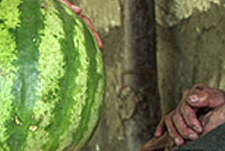
Felisa
Dir: Mari Alessandrini
24ʼ, 2009
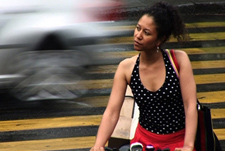
Tierra Roja
Dir: Heidi Hassan
18ʼ 8ʼʼ, 2007
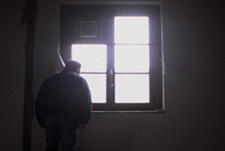
Entretien ave Almiro Da Costa
Dir: Sergio Da Costa
29ʼ 18ʼʼ , 2008
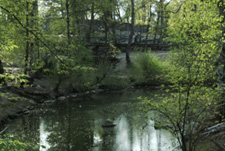
L'ingénieur et le prothésiste
Maya Koza
21'
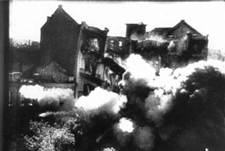
Au début
Dir: Artavazd Peleshian
10', 1967
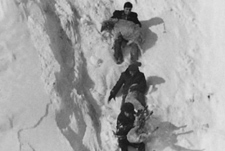
Les saisons
Dir: Artavazd Peleshian
29', 1972
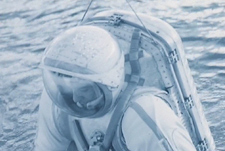
Notre siècle
Dir: Artavazd Peleshian
48', 1982
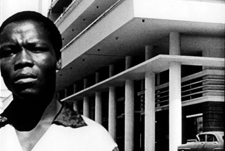
Moi, un Noir
Dir: Jean Rouch
80ʼ, 1958

Sans soleil
Dir: Chris Marker
1983
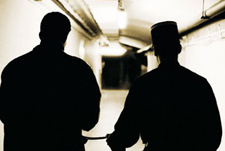
Delitos Flagrantes
Dir: Raymond Depardon
95ʼ, 1994

S-21, la machine de mort Khmère rouge
Dir: Rithy Panh
101ʼ, 2002

Ten
Dir: Abbas Kiarostami
90ʼ,2004
Projections 1 to 8 sept. / 5:30pm to 7:30pm
Bertrand Bacqué
Moderns
Cine Arte Alameda

L'image à paroles
Dir: Michel Favre
90ʼ, 2006

Himno
Dir: Gonzalo Cueto
2ʼ27ʼʼ, 2009

Instalación de Imagen
Dir: Gonzalo Cueto
2ʼ47ʼʼ, 2009

Fiesta Reliosa
Dir: Gonzalo Cueto
2ʼ21ʼʼ, 2009

Conflicto Protestante
Dir: Gonzalo Cueto
1ʼ59ʼʼ, 2009

Lineas de Tensión
Dir: Gonzalo Cueto
3ʼ11ʼʼ, 2006-2009

Chullpas / telar experiencia
Dir: Jo Muñoz
3ʼ19ʼʼ, 2009

El Pueblito
Dir: Maricruz Alarcón
9ʼ, 2009.

Big Pool
Dir: Nicolás Rupcich + Emilio Marín
6ʼ, 2009.

Las Juventudes
Dir: Rodrigo Lobos
7ʼ, 2008

Ernesto che guevara, le journal de Bolivie
Dir: Richard Dindo
102ʼ,1994

Je veux voir
Dir: Joana Hadjithomas & Khalil Joreige
75ʼ, 2008

Dʼun mur lʼautre, De Berlin à Ceuta
Dir: Patric Jean
90ʼ, 2008

Felisa
Dir: Mari Alessandrini
24ʼ, 2009

Tierra Roja
Dir: Heidi Hassan
18ʼ 8ʼʼ, 2007

Entretien ave Almiro Da Costa
Dir: Sergio Da Costa
29ʼ 18ʼʼ , 2008

L'ingénieur et le prothésiste
Maya Koza
21'

La Forteresse
Dir: Fernand Melgar
104ʼ, 2008
Projections 1 al 8 de sept. / 9pm to 11pm hrs
Bertrand Bacqué
Contemporary
Cine Arte Alameda

Janequeo 5707
Dir: Pedro Ordenes
70ʼ 2009

La Tierra Tiembla
Dir: Vania Aillon
35ʼ 2009

Short Film for Laos
Dir: Allan Sekula
45ʼ, 2006

Too Many Things
Dir: Donigan Cumming
40ʼ, 2010
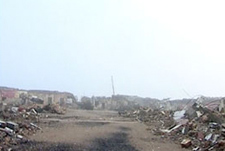
Khiam
Dir: Joana Hadjithomas & Khalil Joreige
52ʼ, 2000-2007
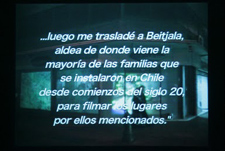
Out of place
Dir: Claudia Aravena
20ʼ

Muxima
Dir: Alfredo Jaar
30ʼ, 2005

Las cenizas de Pasolini
Dir: Alfredo Jaar
2010

Portrait Oblique
Dir: Ingrid Wildi Merino
11 ́48ʼʼ, 2005

Performing the border
Dir: Ursula Biemann
45',1999

Remote Sensing
Dir: Ursula Biemann
53', 2001

The Black Sea Files
Dir: Ursula Biemann
43ʼ, 2004-2005
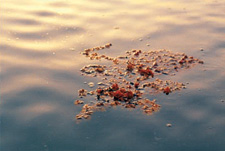
Tierra de agua
Dir: Carlos Klein
80ʼ, 2004

